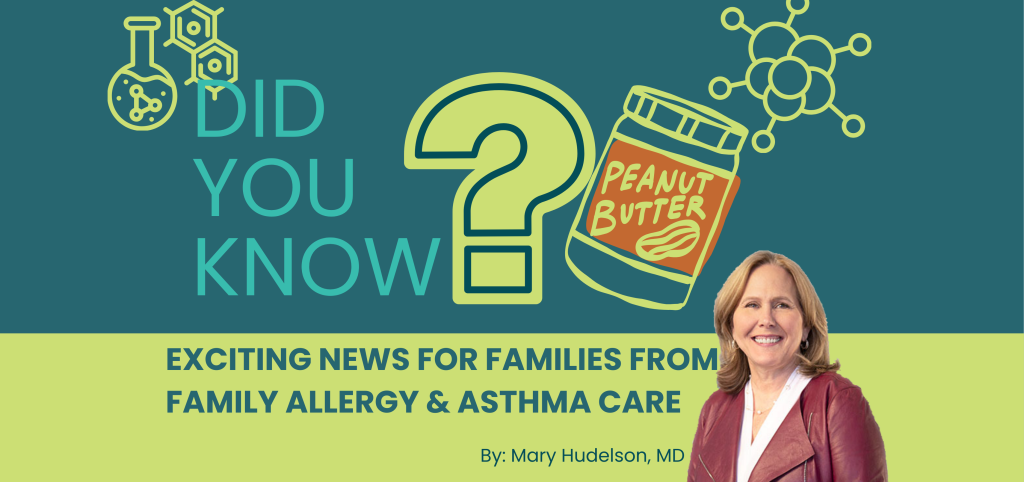I was so excited to see this article published in Pediatrics, confirming that what allergists and pediatricians have been doing over the past few years is truly making a difference. Our collective efforts — including those here at Family Allergy & Asthma Care (FAAC) — are helping prevent peanut and other food allergies in children across the country.
The study, titled “Guidelines for Early Food Introduction and Patterns of Food Allergy,” examined real-world data from thousands of U.S. children before and after national guidelines began encouraging early introduction of peanut-containing foods (around 4–6 months of age).
Here’s what they found:
“The prevalence of peanut allergy decreased from 0.79% to 0.45%, and the prevalence of any IgE-mediated food allergy decreased from 1.46% to 0.93% after publication of the early introduction guidelines.”
— Pediatrics, October 2025 (doi: 10.1542/peds.2024-070516)
That means not only are fewer children developing peanut allergy, but the overall number of children with any food allergy is also going down. In other words, early introduction is protecting more children from food allergies of all kinds — not just peanuts.
What This Means for Your Family
These findings show that prevention is possible. By safely introducing peanut-containing foods (and other allergens) early in life, we can reduce the chance of a child developing lifelong allergies.
At FAAC, we’ve been counseling families to start peanut introduction between 4 and 6 months for most babies, as long as they’re developmentally ready for solids. For infants with eczema or other food allergies, we offer guidance — and sometimes supervised introduction — to make sure it’s done safely and confidently.
This research reinforces what we already see in our own practice: when families follow these evidence-based recommendations, fewer children go on to develop peanut or other food allergies.
A Few Take-Home Points
🥜 Early introduction works. The sooner peanut-containing foods are introduced safely, the lower the risk of peanut allergy.
🍳 It helps beyond peanut. The same early-exposure principles may protect against allergic sensitization in general, not just to peanut.
👶 Each baby is unique. If your baby has eczema or another food allergy, talk with your allergist before introducing peanuts — we can help you create a personalized plan.
💬 Education and guidance matter. These successes happen because families, pediatricians, and allergists are working together.
Why I’m Excited
When I read this study, I actually paused to smile — this is exactly what we hoped to see when the Learning Early About Peanut Allergy (LEAP) study first came out a decade ago. To now see that real-world families are benefiting, and that rates of both peanut and all food allergies are dropping, is incredibly rewarding.
At FAAC, we’re proud to be part of this movement — helping families not just manage allergies, but prevent them.
Thank you for trusting us with your children’s care and for continuing to help us spread awareness about early, safe introduction.
Warmly,
Dr. Mary Hudelson and the FAAC Team




